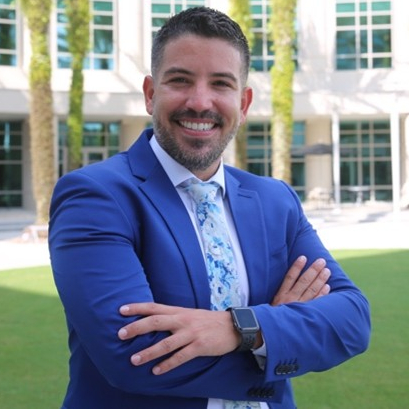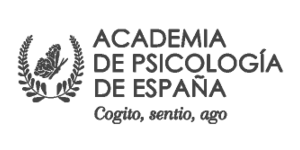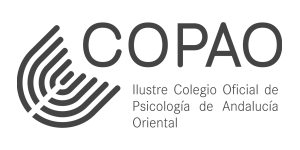Speaker

OMAR MARTINEZ
UCF COLLEGE OF MEDICINE. UNITED STATES
Omar Martinez holds dual graduate degrees, earning both a Juris Doctor and a Master of Public Health from Indiana University-Bloomington, as well as a Master of Science in Clinical Research Methods from Columbia University’s Mailman School of Public Health. He completed a prestigious NIH T32 postdoctoral research fellowship in behavioral science and HIV prevention at the HIV Center for Clinical and Behavioral Studies, a joint program of Columbia University and the New York State Psychiatric Institute. Currently, Dr. Martinez is an Associate Professor in the Department of Population Health Sciences at the University of Central Florida College of Medicine and Director of the Implementation Science Research Lab. His research sits at the intersection of law, public health, and social justice, with a focus on Medical-Legal Partnerships.
These initiatives embed legal services into healthcare settings to address health-harming legal needs often overlooked in traditional models of care. Professor Martinez explores how this integrative model improves health outcomes for immigrants, individuals living with HIV, and those with criminal justice system involvement. His work demonstrates that addressing health-harming legal needs is crucial to reducing disparities and advancing health equity. In addition to his research, Professor Martinez is committed to training and mentoring future leaders in behavioral science and public health. He has guided numerous early-career scholars and collaborates with community organizations to apply evidence-based practices.
Professor Martinez also contributes his expertise through active service on the boards of several nonprofit and community health organizations. These include CREWHealth and The Philadelphia AIDS Consortium, both of which are dedicated to providing comprehensive, wraparound HIV prevention and care services. He is also a board member of Women Organized Against Rape, an organization that focuses on ending sexual violence through trauma-informed treatment, public education, and advocacy for survivors.
Justice as Care: Leveraging Medical-Legal Partnerships to Bridge Health Disparities for Adolescents and Young Adults

Adolescents and young adults, particularly those from marginalized and underserved communities, face deeply entrenched health inequities, including elevated rates of HIV, mental health conditions, and substance use disorders. These disparities are driven not only by individual-level factors but also by structural and systemic barriers such as racial discrimination, housing instability, immigration challenges, and involvement with the juvenile or criminal justice systems that interfere with equitable access to care. Recognizing the multifaceted nature of these challenges, Medical-Legal Partnerships (MLPs) have emerged as a promising and integrative model to address health-harming legal needs through the embedding of legal services within healthcare delivery systems.
This symposium presents findings from four innovative, multidisciplinary studies exploring the feasibility, acceptability, and impact of MLPs on the health and well-being of adolescents and young adults. Each study has been guided by both community advisory boards and scientific advisory boards, ensuring alignment with the lived experiences, needs, and ethical considerations of the populations being served. These governance structures have played a central role in co-developing research protocols, identifying priority areas of concern, and informing culturally and developmentally appropriate intervention approaches.
The symposium will focus on three core aims: (1) identifying and contextualizing the legal and structural barriers that disproportionately affect diverse youth populations, including LGBTQ+ youth, racial and ethnic minorities, immigrants, and youth involved in child welfare or justice systems; (2) presenting emerging data from clinic-based MLP interventions designed to address these barriers; and (3) sharing implementation strategies grounded in trauma-informed, community-centered frameworks and collaborative team-based care.
Presenters will detail how these MLP interventions function within real-world healthcare settings, such as clinics, HIV care sites, and behavioral health programs, offering examples of how legal partners have successfully addressed issues such as housing insecurity, immigration status, education access, and discrimination in healthcare and employment.
Preliminary outcomes from these studies point to improved care engagement, decreased stress related to legal burdens, and enhanced trust between youth and their healthcare teams. Importantly, the symposium will look toward the future of MLPs in adolescent and young adult health. This includes considering how legal services can be integrated to support families as a whole, recognizing that youth health is often influenced by broader family dynamics and intergenerational structural inequities. In addition, presenters will discuss the legal and ethical complexities faced by multidisciplinary care teams such as confidentiality, consent, mandated reporting, and cross-sector information sharing, and how MLPs can provide critical support to providers, including psychologists, navigating these challenges.
Ultimately, the session will argue that legal empowerment, when meaningfully embedded within health systems, is essential for advancing health equity. By aligning MLPs with youth engagement strategies and public health priorities, the field can move toward a more just, responsive, and inclusive model of adolescent and young adult care.












